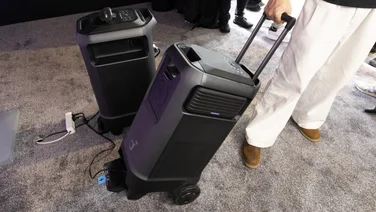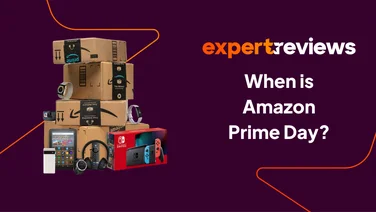To help us provide you with free impartial advice, we may earn a commission if you buy through links on our site. Learn more

Ever since the first webpage popped into existence in 1991 internet users have retained a belief that all traffic on the network should be treated equally, with no service penalised or slowed down. Known as net neutrality, this concept has been a big driving force behind the web, but it’s now under threat from big corporations looking to implement a two-tier internet, with a fast lane for those willing to pay for it. Although the first salvos are being fired in the US, the implications could be rather shocking here in the UK, both in terms of how the internet could change and how much it will cost.
The reason that net neutrality has come to the forefront is down to two simple words: video streaming. We’ve become big consumers of internet video, with BBC iPlayer, Netflix and YouTube some of the most popular sites on the internet. In fact, it’s now estimated that half of all internet traffic is down to streaming video.
The problem with all this is that video streaming uses a lot of bandwidth, requiring ISPs to invest heavily in infrastructure to meet our burgeoning bandwidth needs. It’s left a rather difficult question: who should foot the bill for making your movie stream more smoothly or your TV show download in double-quick time?
Sadly, before this question can even be debated properly, let alone answered, a two-tiered internet is already being created with a fast lane for companies willing to pay and a slow lane for everyone else. In the US, major internet providers are asking for video streaming companies, including Netflix, to pay for a better quality of service, which could lead to the internet being controlled by big corporations and the deals that they do.

Why net neutrality matters
In the US Verizon has successfully challenged the Federal Communications Commission (FCC) over its plans for new open internet laws, effectively leaving the regulator unable to regulate. This opened up a window of opportunity for Verizon and Comcast to start asking bandwidth hungry internet services for payment. And pay they did.
Netflix has “reluctantly” agreed a deal with Comcast to create a “more direct connection”. The deal, struck in March, came after Comcast customers saw their connection to Netflix slow dramatically, causing poor video quality and buffering streams. A similar deal also exists between Netflix and Verizon.
In May, Amazon, Facebook, Google, Twitter, Microsoft, Netflix and Yahoo wrote an open letter urging the FCC to ban a so-called two-tiered internet. The major web companies argued that the internet should never discriminate against certain companies and force them to pay for access to the network. The letter said such measures represented “a grave threat to the internet”.
A two-tiered internet would, without doubt, create a fast lane and a slow lane. The FCC has said it doesn’t want this, but tough lobbying from major cable companies in the US could leave it with no choice. A public consultation closes on 15 July, with the FCC expected to announce its final decision later this year.
All this corporate in-fighting is bad news for you and your wallet. After Netflix agreed to pay a fee to Comcast and Verizon in the US, it put up its prices in the US and in the UK. So while political and corporate wrangling in the US may seem irrelevant, its effects are very likely to be felt over here.

What is a two-tiered internet?
On any given day Netflix can account for nearly a third of all US internet traffic. For internet providers in the US such as Comcast and Verizon that’s a hefty load to carry. Their argument is that services that require huge amounts of bandwidth should pay for the necessary infrastructure.
Netflix’s counter argument is that ISPs cannot hold internet companies to ransom by demanding a sweetener from any website that wants a decent quality of service. But why should the connection speed you get to certain websites be dictated by deals done under the table? Isn’t the internet meant to be equal, open and free?
The row between Netflix and Comcast comes down to something that sounds terribly dull – interconnectivity. When you sit down to watch an episode of House of Cards on Netflix you make a request for content from Netflix– this request is carried by your ISP who then moves the data from point A to point B through something known as an interconnect.
If this becomes congested then certain services will struggle. On Netflix that means buffering and poor video quality. What Netflix has been forced to pay for is a more direct connection from its servers to Comcast. This effectively moves all Netflix traffic on Comcast through a peer-to-peer connection, doing away with the interconnect altogether. That means no buffering for Comcast customers watching Netflix.

The flip-side is that it also means that the best quality of service is open to the highest bidder and the internet is no longer equal. If you’re a smaller company or start-up that can’t afford to pay Comcast or Verizon then your service is at risk of being slowed down.
The situation in the USA traces its roots back to a seemingly inconsequential decision made by George W Bush in 2002. The then president split telecoms communications from “information services”. This meant that broadband was no longer treated as a traditional utility like electricity, water and gas. You wouldn’t expect to pay more for water you can actually drink and critics argue that the internet should all come down the same pipe and not split up.
What about in the UK?
In the UK the BBC’s iPlayer dominates the video streaming market, with three billion programme requests made in 2013. This phenomenal amount of traffic is only set to increase as more and more people discover the joys of catch-up TV.
The BBC has agreements with a number of ISPs to deliver iPlayer over a peered link. The link between iPlayer and UK ISPs works in a similar way to what Netflix and Comcast are doing in the US, but there’s no suggestion money has changed hands.
Details for peering with the BBC are public but information on specific agreements is not available. The BBC mostly uses content delivery networks and a lot of iPlayer data is peered over these networks and not the BBC’s. Agreements tend to be mutually beneficial – video streaming works better and ISPs offer a better quality of service to you, so everyone’s happy.
Industry regulator Ofcom has said that these agreements are good as they speed up the internet as a whole, but bad as they could stifle innovation if smaller companies can’t also use these peered connections. Ofcom has also warned that so-called net-neutrality in the UK could be abused by companies looking to get an advantage over their rivals.
“The central concern in relation to ‘Net Neutrality’ is the risk that ISPs will seek to manage their subscribers’ access to online services in order to further commercial objectives,” Ofcom explained in a report. “For example, that BSkyB might prevent access to third party video on demand (VoD) services like Netflix, to favour
[its]
own pay television offering; or that ISPs may seek to charge online service providers for access to their subscribers, and block those who do not pay.”
In the UK all the major broadband providers have their own video on demand services, with BT, Sky, TalkTalk and Virgin Media all bundling video services in with their broadband. BT openly admits that it prioritises BT Vision traffic on its network to make sure that on demand films get additional bandwidth. The risk is that such practices could become more dubious and widespread, although Ofcom is keeping a close eye on things.
The future of net neutrality in the UK
The situation in Europe is in stark contrast to the US. In April the European Parliament voted to restrict ISPs from charging other companies for faster network access. Under the new rulings home and mobile broadband companies will also no longer be able to block services that compete with their own. Behind the EU proposals, expected to be passed into law later this year, is the notion that all internet traffic should be treated equally, regardless of where it came from. The European Parliament was concerned that unless it acted now internet providers might slow down traffic for bandwidth hungry services unless firms paid a fee.

The flipside of such laws is that someone somewhere has to pay for the extra infrastructure that will be required to feed our internet appetite. In an open letter some of Europe’s largest cable and telecoms companies, including Virgin Media, argued that the new EU laws could stifle innovation and harm consumers.
“The current draft legislative compromise in the European Parliament reflects very restrictive views on how the internet should work and on how specialised services with enhanced quality could be offered,” the joint statement argued.
Or, to look at it another way, you’ll end up paying more. If Netflix has to pay internet providers a fee to carry its service then it will likely put its prices up. Likewise if Netflix doesn’t pay internet providers a fee to carry its service then expect your internet provider to increase its prices.
With more and more people streaming films and TV shows, playing online games and making Skype calls it is inevitable that demand for bandwidth will increase. Supporters of net neutrality argue this is no excuse for the creation of a two-tiered internet where the best service is only available to the highest bidder. Under this model the average person on the street has no control over their internet connection.
Pressure on the internet from big corporations, governments and regulators is only likely to intensify as different parties wrestle for control. Whoever ends up winning this high-stakes tug of war will have a big impact on your wallet and the future of the whole internet.






